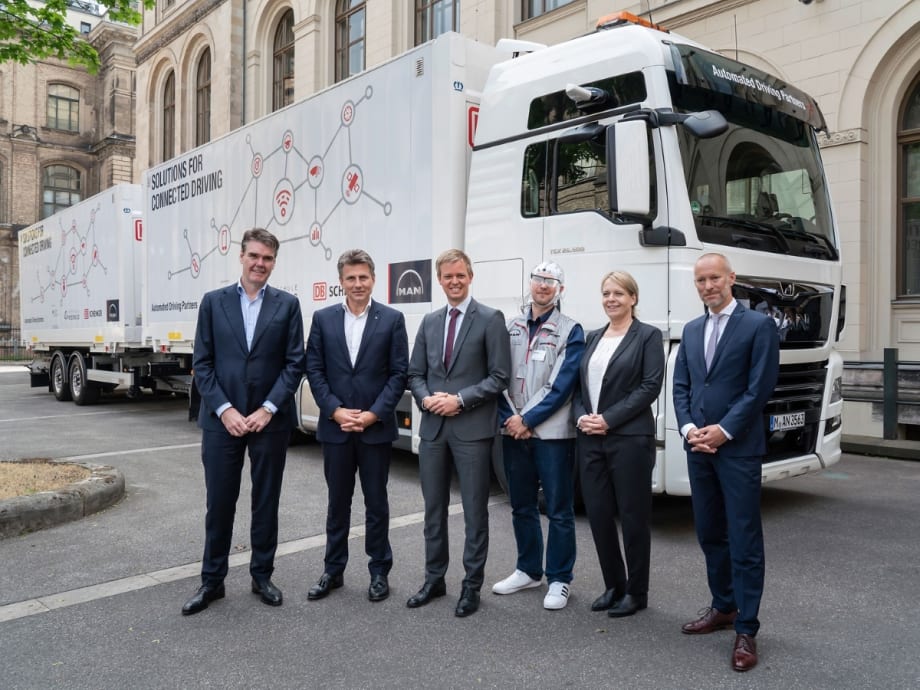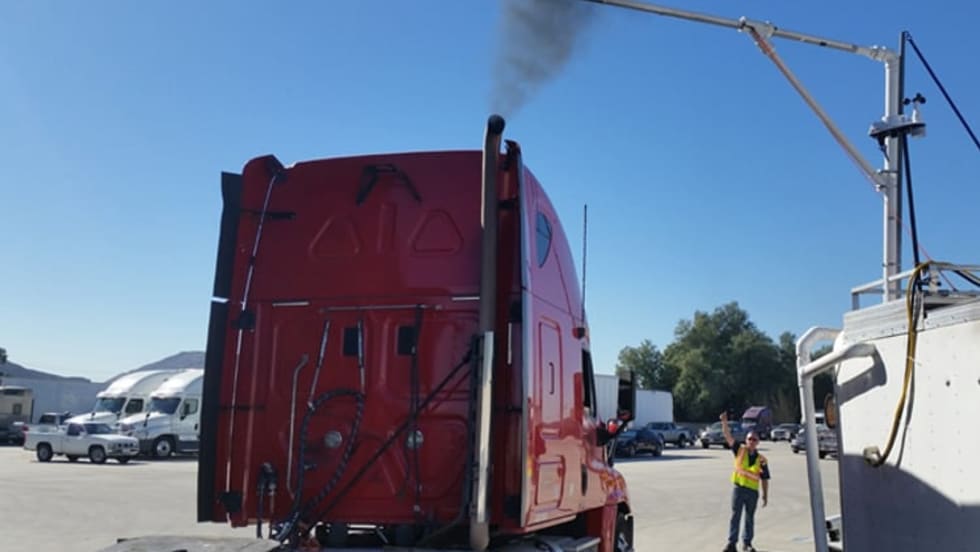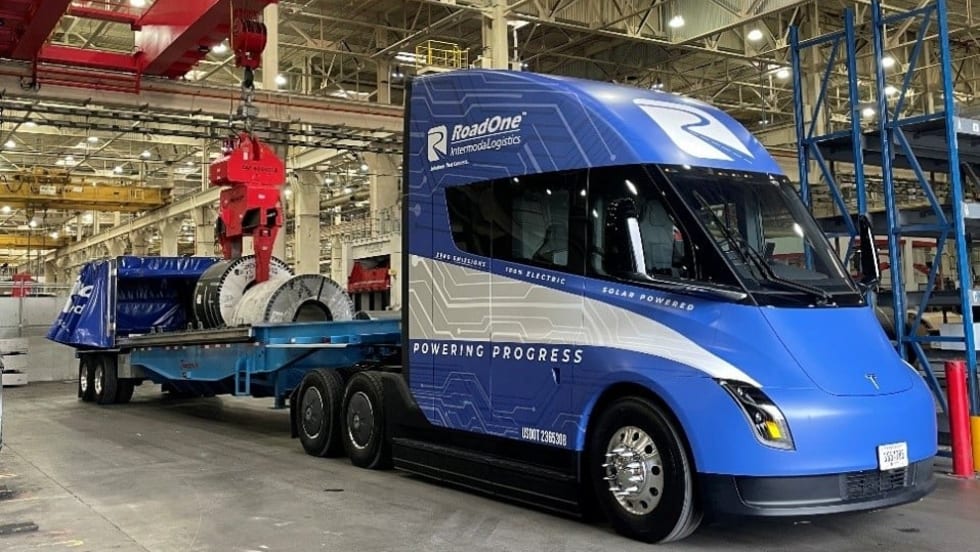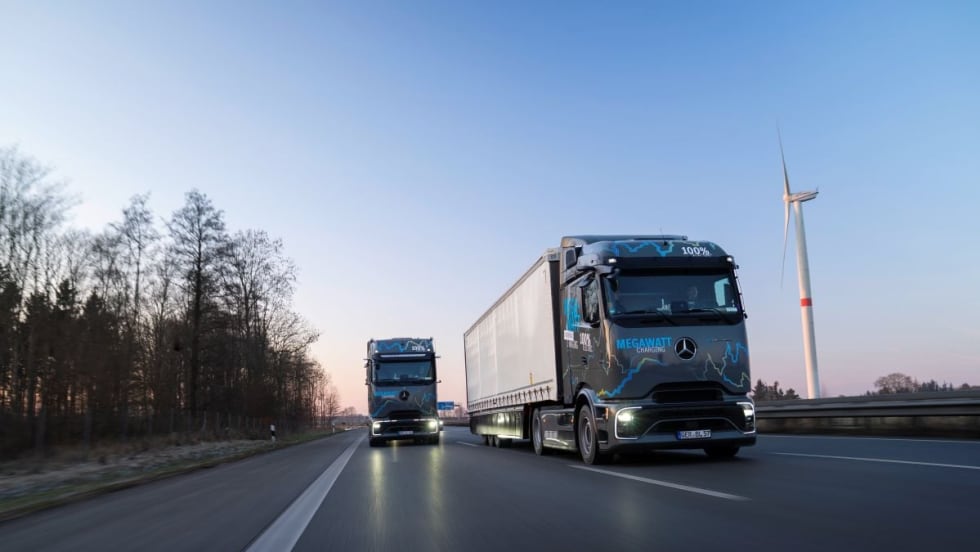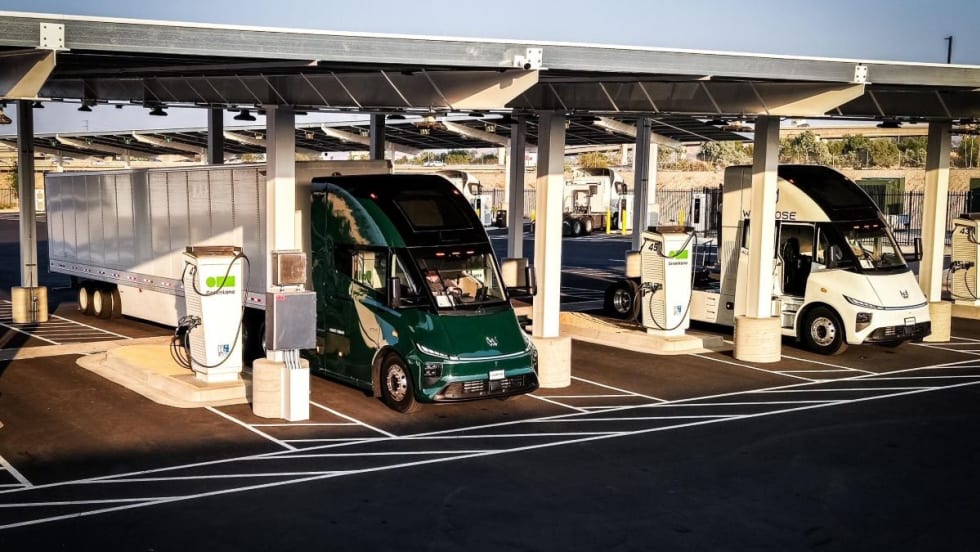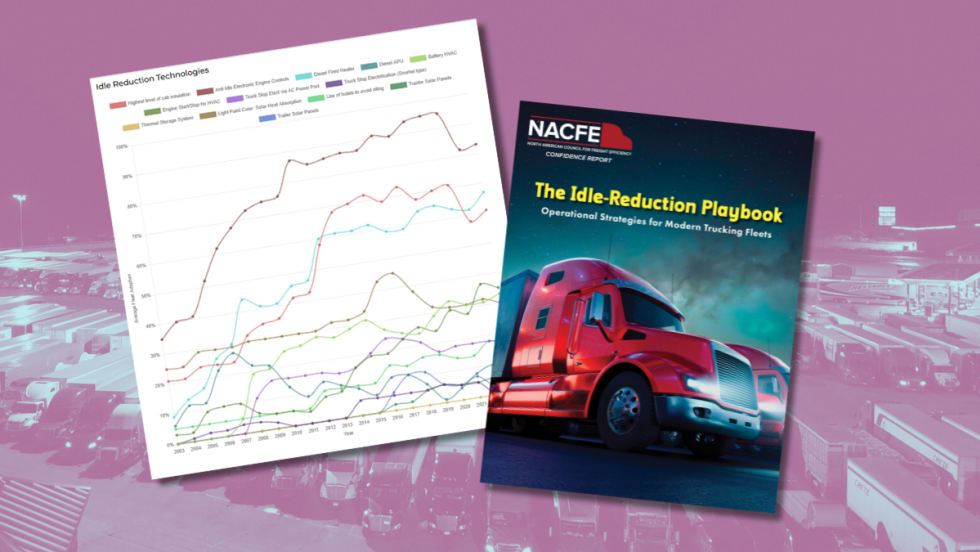A platooning project conducted in Germany jointly by global logistics supplier DB Schenker, MAN Truck & Bus, and Fresenius University of Applied Sciences has demonstrated that the electronically linked system is “safe, technically reliable, and easily applicable in the routine of a logistics company,” according to the three pilot partners.
As part of a research project sponsored by Germany’s Federal Ministry of Transport and Digital Infrastructure (BMVI), commercially licensed drivers drove two electronically linked vehicles on Autobahn 9 between DB Schenker’s Nuremberg and Munich branches over the course of seven months. BMVI provided funding of some 1.86 million euros to the project.
After running some 35,000 test kilometers (21,748 miles), the truck drivers-- who drove the European double-trailer rigs separated by distances of only 15 to 21 meters (16.5 to 23 yards)— “praised the driving comfort and the general sense of safety.”
The project found that the platooning system installed in the MAN trucks“operated smoothly” 98% of the time with active interventions by drivers needed only once every 2,000 kilometers, which was described as being “much less than expected.” The field test also demonstrated a 3% to 4% reduction in fuel consumption.
"We were able to show that platooning has the potential to contribute to the reduction of fuel consumption and CO2 emissions,” said Joachim Drees, chairman of the Management Board of MAN Truck & Bus. “We are pleased that the system works reliably and can increase safety on the motorway. Accordingly, platooning is an important step for us on the way to automation."
According to DB Schenker, the research indicates platooning can be used extensively in its logistics network. "We have analyzed our European transport network and it is safe to say that around 40% of the kilometers traveled could be carried out in platoons,” said Alexander Doll, member of the Management Board for Finance, Freight Transport and Logistics at Deutsche Bahn, parent firm of DB Schenker.
Clear Benefit
However, Doll added, for platooning to become that widespread, “further tests and ensuring the regulatory framework [allows it] would be necessary.” But the benefit would be clear: "With platooning, we can offer even more reliable transports."
It would seem no stone was left unturned: Scientists from the Fresenius University of Applied Sciences investigated the psychosocial and neurophysiological effects on the drivers. Experiencing platooning first-hand in the real world changed the previously skeptical attitude of the drivers.
"A general sense of safety and trust in the technology is echoed in the drivers' assessment of specific driving situations,” said Professor Sabine Hammer of the Institute for the Science of Complex Systems. “None of these were described as uncontrollable.”
The researchers regarded other motorists cutting in from adjacent lanes or cutting across multiple lanes as "disagreeable," but not critically so. "Due to the fast response times of the system, drivers would now prefer a distance of 10 to 15 meters [11 to 23 yards]," noted Hammer.
"The EEG measurements show no systematic differences between platoon runs and normal runs when it comes to the neurophysiological stress placed on drivers, i.e. in terms of concentration or fatigue," said Professor Christian Haas, director of IKS. For international use, the scientists recommend further research with longer periods in platooning mode.
The project partners said in a news release that they are “convinced that the potential of truck platooning can be further increased by future developments. In addition, new digital business models in logistics are conceivable.”




